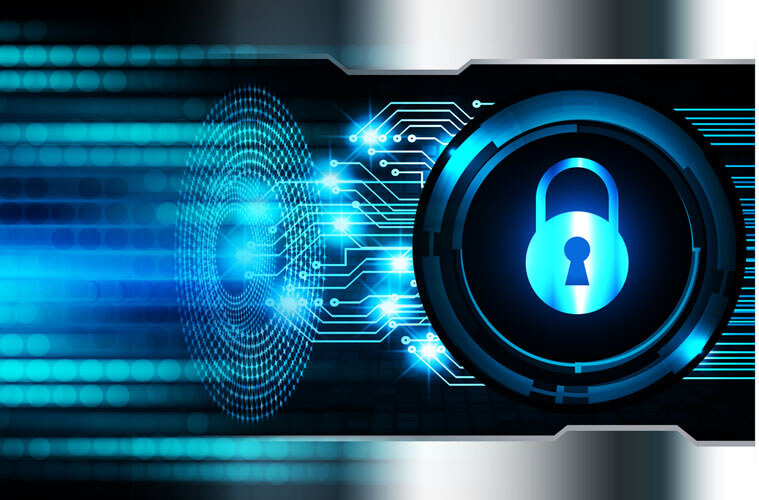In this global era, the Internet is a big and essential part of our life. So many of our daily activities incorporate the digital world, such as ordering a taxi, shopping, socializing, banking and many more. But did you know, as we are using this technology our actions could be being tracked, and our personal data could be at risk, as well as our financial wellbeing? With so many scams and hacks occurring there has never been such an important time to protect our digital privacy.
In this article, we will cover the latest threats TO digital privacy, threats FROM digital privacy, and some methods that give you the best chance of staying out of harm’s way.
Threats to Digital Privacy
So many people are willing to share their personal data for free for the sake of convenience. For many online services such as social media, e-commerce sites, apps, games, and more, our personal data is collected, and even sold on to third parties, that states who we are, where we are, and what we may be interested in. But this is not the only threat; we are also at risk from our own lack of security and persistent attacks aimed at us by hackers. We cover all these threats below:
Website Tracking and Data Collection
Cookies are the most well-known method for tracking our web browsing. However, there are other methods such as ‘account tracking’ and ‘MAC address tracking.’ All these techniques put our privacy at risk when browsing the web, and allow others to see how many hours we spend online, the kind of websites we visit, and what we are interested in. The main reason websites like to track these activities is because this data is highly valuable for marketing. Another reason given to this surveillance is security, and this is the main reason the United States Congress allowed Internet Service Providers (ISPs) to collect and share our browser data.
Data collection does not have to be done in real-time through tracking, third-parties may also get access to your data by services you use sharing or selling it to them without you even having direct interaction with them. Mobile apps are another great example where data is collected, as to use their services, you must agree to give them access to your phone number, images, contacts, microphone, and other phone functions.
Many believe that this tracking information and personal data is actually used against us through propaganda and marketing schemes designed to influence our thinking and decisions. It is scientifically said that repeated visual exposure to an image of certain messages can affect the preference of the observer. And it’s even more effective if the observer does not realize it’s happening.
Lack of Security
Despite online services and malicious attackers trying to force us to give away as much data as possible, we ourselves are also somewhat responsible for our own digital privacy. For example, when we use a service, we can often adjust our accounts privacy settings, it’s just that it takes a little bit of effort. It is us who agrees to terms and conditions, it is us who chooses our passwords, and it is us who decides what we want to post publicly online. Therefore, our own actions can lead to a lack of security.
However, the lack of security is not always on our behalf. One tip when browsing the web is to make sure websites have the latest and strongest security. The use of ‘HTTPS’ means that the web communication protocol is encrypted. To check whether a website is using this or not simply look at the address of a website to see if it begins with ‘https://.’ If a website is not using ‘HTTPS,’ then it increases the risk of becoming a victim to cyber-criminal activities such as identity theft and fraud.
Hackers
The threat from hackers is continuously rising, and hacking has now become a global epidemic. In July 2018, it was reported that a personal data hack on the Singapore Governments health database resulted in the data of 1.5 million people, about a quarter of its population, being stolen. The medical data of the Prime Minister of Singapore, Lee Hsien Loong was one of the primary and repeated targets of the attack.
The rise of Bitcoin and cryptocurrencies has also given birth to a huge number of shocking hacks and attacks. Numerous cryptocurrency exchanges have been targeted resulting in the loss of billions of dollars. The most notorious case was the hack of the Mt. Gox exchange where cryptocurrencies worth $350 million at the time were stolen.
There are too many recent and separate incidences of hacking on both a small and large scale to be able to mention even a fraction of them all. It’s for this reason that hacking makes it to the list of top threats to digital privacy.
Threats from Digital Privacy
As we have now addressed the threats to digital privacy, we now must also consider the threats from digital privacy. While we want to enjoy the benefits of privacy when communicating with our friends, browsing online and using different applications and services, we must also acknowledge the repercussions of this. As I’m sure, most people want these benefits for innocent reasons; some may want to keep their online behavior secret due to their bad intentions. Is complete digital privacy really viable, and if so what would be the biggest threats from that?
Internet Trolls and Bullies
While many say the best way to respond to internet trolls is to ignore them, there have been many cases where the abuse from trolls and bullies has been traumatic for their victims. Trolls will not usually use their real names when carrying out their actions, but, with the use of data collection and internet tracking, it is possible to uncover who these people really are and even prosecute them. Having this kind of risk must certainly be a deterrent for trolls, and if complete digital privacy is achieved, then trolls will be free to carry out their terrible actions in complete safety.
The testimony of a woman during her time on jury duty really puts forward this argument. She witnessed the trial of a man who repeatedly harassed his ex-girlfriend, through thousands of phone calls and messages, and by posting nude photos of the victim online and sending them to her family. Luckily evidence was collected quite quickly because the privacy of the suspect was weak. However, if this was a situation where the suspect had used encrypted applications like in WhatsApp and Telegram or the latest iPhone with its advanced security system, then this nasty criminal may never have been punished, and justice would not have been served.
This creates quite a dilemma, right?
Safe-haven For Criminal Activities
Digital privacy also helps to create safe-havens for various criminals and criminal activities to operate and thrive in. This could include the buying and selling of illegal drugs and illicit materials, online attacks and harassment, piracy and theft such as downloading copyrighted content, and the organization of criminal gangs and terrorist activities. With complete digital privacy, these activities can occur, and neither me, you, nor law enforcement can do anything to stop it.
Protect Your Privacy, the Prevention Methods
At the end of the day, protecting yourself digitally is very important. While we welcome 2019 and all its technological advancements, we ourselves must make sure that this does progress not come back to harm us. Now that so many activities and transactions are carried out digitally in an era where we don’t even need physical money, as online banking, e-cash, and cryptocurrencies like Bitcoin take its place. This is why it’s so important to be aware of our digital privacy and safety going forward. But how do you protect yourself in the virtual world?
Here are our top five tips:
- Disable access to cookies or delete cookies data on your computer regularly. This can help prevent strangers and marketers from tracking you. Another option is to browse the web in ‘private browser’ or ‘incognito’ mode.
- Use a VPN. A VPN allows users to create a secure connection and helps to stop prying eyes from seeing your browsing activity. Most services are subscription-based, so make use of VPN deals to enjoy the best rates all year round.
- Use a unique password for each of your accounts. This can prevent hackers from being able to access all your accounts if they discover one password. Also, make sure your passwords are not ‘weak’ and easy to guess, such as your pets name or date of birth. If necessary, use two-factor authentication for better security.
- Install an antivirus and malware blocker. Great free examples would include Avast antivirus and Malwarebytes. Paying for the premium version of a quality antivirus or security product is money well spent in my opinion.
- Keep all your programs and operating systems up-to-date, as the latest updates usually contain patches for any security vulnerabilities found.
Apart from the five methods above, it is also important that we use the internet wisely and avoid giving too much personal data to sites unless it’s really necessary. Be aware of what you post online publicly. Comments and photos could come back to haunt you by hurting your job prospects, leading to personal embarrassment or by unintentionally giving away key information to hackers and fraudsters.
To sum up, Bitcoin wallet, that stores Bitcoins, has proved to be a safe storage for the digital money.





